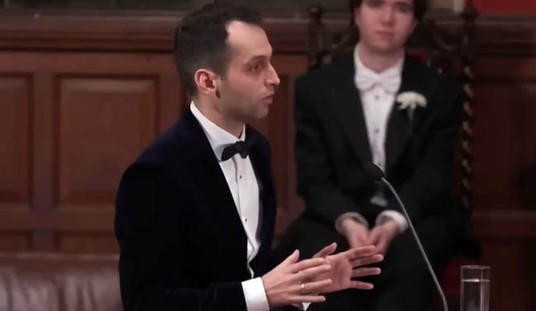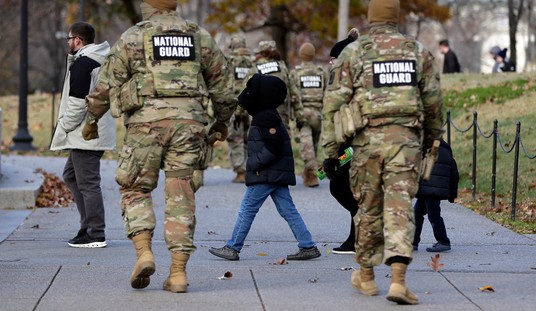Pro-life leaders have tried for the last few years to push the window of restrictions on abortions to at at least the stage where a heartbeat can be detected in normal diagnostic testing. Arkansas had been the first state to pass such a measure, but Governor Mike Beebe, a Democrat, vetoed it over concerns about its constitutionality. However, thanks to bipartisan support, both chambers of the legislature voted to override the veto and reinstate the 12-week limit:
Arkansas has the nation’s most restrictive abortion ban after the Republican-dominated state House voted Wednesday to override the governor’s veto.
The measure, S.B. 134, bans most abortions after 12 weeks if a fetal heartbeat is detected, but it includes exemptions for rape, incest, if the the mother’s life is at risk and disorders that would cause the baby to die soon after birth.
The law, titled the Arkansas Human Heartbeat Protection Act, takes effect this summer. …
Last week, the Legislature overrode another abortion-ban veto by Beebe. That bill, H.B. 1037, bans most abortions after 20 weeks, with the same exceptions, and became law with the Feb. 26 override.
Of the 4,033 abortions in the state in 2011, 20% occurred at or after 12 weeks, according to the Arkansas Department of Health.
Beebe, for his part, insisted that both laws stand no chance of being upheld by the Supreme Court and will end up costing the state a lot of time and money in futile court challenges. The New York Times reports that Beebe has a few strange bedfellows in that position:
“When is enough enough?” asked the bill’s sponsor in the legislature, Senator Jason Rapert, a Republican, who compared the more than 50 million abortions in the United States since the 1973 Roe v. Wade decision to the Holocaust and the Rwandan genocide. “It’s time to take a stand.” …
But other anti-abortion leaders say that strategy, exemplified by the Arkansas law, is likely to backfire, causing courts to endorse the current limits and wasting resources that could bring real, if smaller, gains.
“As much as we would like to protect the unborn at that point, it is futile and it won’t save any babies,” said James Bopp Jr., a prominent anti-abortion lawyer who opposed the Arkansas law. Mr. Bopp, who lives in Indiana, is general counsel of National Right to Life.
He said that lower courts are virtually certain to affirm existing Supreme Court rulings and, like many other legal experts, he predicted that the Supreme Court was very unlikely to agree to hear such a case.
The reluctance to push on “fetal heartbeat” legislation comes from a fear that a negative ruling by the current Supreme Court will set precedents that may prove difficult to undo by a later, more sympathetic court. However, if Bopp is correct that the top court will avoid taking this case if an appellate court throws out the law, then there really isn’t much to fear from a more aggressive strategy. There is also a question of just when we might expect a more sympathetic court. Had Obama lost his re-election effort, that may have arrived sometime in the next few years. Now, though, if anything we may see a less sympathetic court than we have now, and therefore it may be time to roll the dice.
The odds may be a little long on a ruling upholding a state law recognizing a firmly objective and scientific criterion — a detectable heartbeat using normal ultrasound techniques (rather than the transvaginal method that created such a headache for Bob McDonnell in Virginia) — as a rational method to regulate and limit abortions. Science in pre-natal life has advanced tremendously since Roe v Wade and its companion Doe ruling, for one thing. For another, the potential swing vote on such a challenge just complained publicly about the demand for Supreme Court intervention in exactly the kind of legislative issues this presents:
Justice Anthony Kennedy says he is concerned that the U.S. Supreme Court is increasingly the venue for deciding politically charged issues such as gay marriage, health care and immigration.
The 76-year-old associate justice said Wednesday that major policies in a democracy should not depend “on what nine unelected people from a narrow legal background have to say.”
Rather, he said, it is important for political leaders to show the world that democracy works through compromise.
In this case, Arkansas legislators demonstrated bipartisan consensus on this issue. This might not be as lost a cause as some on both sides of the issue believe.









Join the conversation as a VIP Member